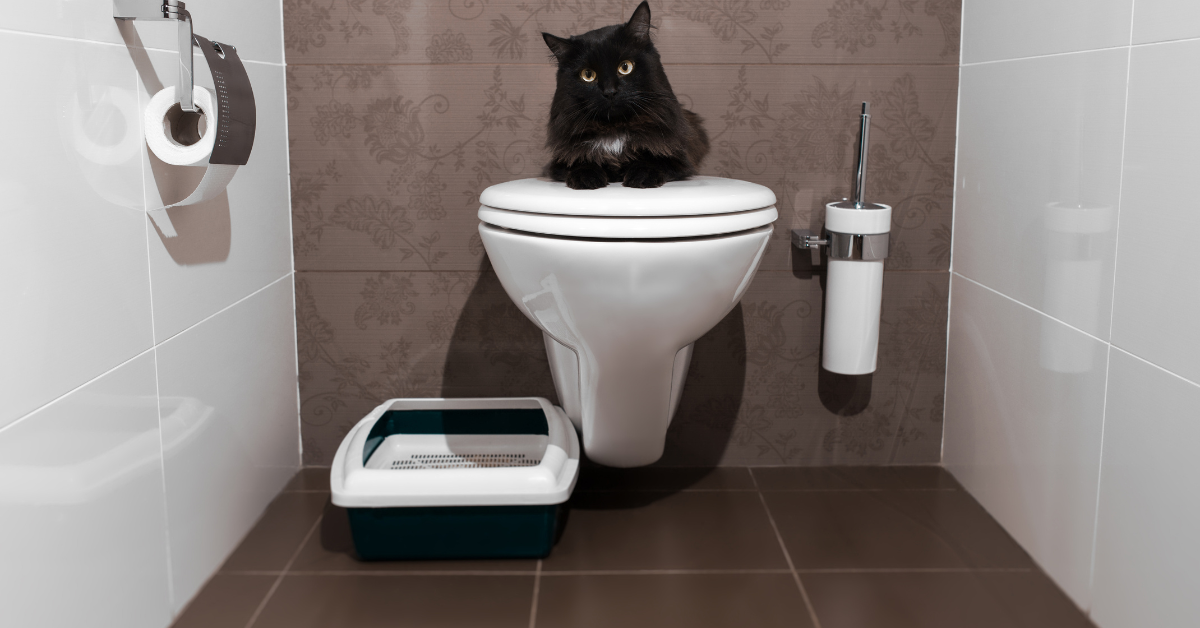Each person will have his or her own thinking on the subject of 10 Things You Should Never Flush Down The Toilet.

When it involves disposing of waste, particularly animal waste, many people usually consider the practical alternative of flushing it down the toilet. However, this apparently simple option can have major repercussions for the setting and public health. In this article, we'll explore why flushing pet waste down the bathroom is a negative idea and provide alternative approaches for appropriate disposal.
Introduction
Correct waste disposal is vital for keeping environmental sustainability and public health. While it may appear harmless to purge animal waste down the bathroom, it can cause numerous issues, both for the atmosphere and human well-being.
Risks of flushing animal waste
Ecological effect
Flushing animal waste introduces dangerous microorganisms and pathogens into rivers, which can adversely affect water ecosystems. These pathogens can contaminate water resources and harm aquatic life, interfering with delicate ecosystems.
Public health issues
Pet waste has harmful bacteria such as E. coli and Salmonella, which can posture serious health and wellness dangers to human beings. Purging animal waste down the commode can pollute water supplies, causing the spread of conditions and infections.
Alternatives to flushing
Instead of purging pet waste down the toilet, there are numerous alternate disposal approaches that are much more eco-friendly and sanitary.
Composting
Composting animal waste is an environment-friendly method to dispose of it. By composting, organic matter is broken down into nutrient-rich dirt, which can be utilized to feed yards and plants.
Landfill disposal
Throwing away animal waste in a landfill is one more option. While not as environmentally friendly as composting, it is a safer option to flushing, as it prevents the contamination of water sources.
Family pet garbage disposal systems
There are specific pet dog waste disposal systems offered that securely and hygienically get rid of animal waste. These systems frequently use enzymes to break down waste and remove odors.
Steps to proper pet garbage disposal
To ensure appropriate disposal of pet waste, comply with these actions:
Scooping and nabbing waste
Routinely scoop and bag animal waste utilizing biodegradable bags. This avoids waste from polluting the atmosphere.
Using marked waste containers
Dispose of bagged animal waste in marked waste containers, such as garden compost containers or land fill containers. Stay clear of flushing it down the bathroom in all prices.
Cleansing can and family pet areas frequently
Frequently clean can and family pet areas to prevent the buildup of waste and microorganisms. Use pet-safe cleaning items to maintain health.
Benefits of correct disposal techniques
Taking on appropriate disposal approaches for animal waste provides numerous benefits:
Minimized environmental pollution
Proper disposal techniques lower the risk of environmental pollution, shielding waterways and environments from contamination
Reduced threat of water contamination.
By staying clear of flushing animal waste down the bathroom, the danger of water contamination is significantly decreased, securing public health.
Enhanced hygiene and health
Correct disposal methods advertise far better hygiene and health, developing a more secure setting for both human beings and pets.
Final thought
To conclude, flushing animal waste down the commode is unsafe to the setting and public health. By embracing alternate disposal methods and following appropriate waste monitoring techniques, we can minimize the negative impact of animal waste read more and contribute to a cleaner, healthier earth.
What To Do With Dog Poo – The Do's And Don'ts Of Disposing Of Faeces
Dog poo bins
Some councils provide dedicated dog waste bins in popular dog-walking areas that can take dog poo that has been bagged but you can legally dispose of dog waste in any public litter bin, as long as it is securely bagged. This also applies to your wheelie bin at home.
Do not flush
Water companies do not recommend flushing dog faeces down the toilet because certain parasites can survive the water processing treatment and are potentially harmful to humans. You should also never consider flushing dog poo that has been bagged down the toilet as the bags will not break down and instead create severe blockages in the sewage system.
In the woods
The Forestry Commission promotes a ‘stick and flick’ method for dealing with waste in the woods. This means finding a stick and using it to flick any poo from off the path so that it is out of the way of other walkers. You could also bury it as long as it is not in an area where there might be livestock.
Livestock
Parasites found in dog poo can be transmitted to livestock if they inadvertently eat infected faeces that has been left on grazing land. This could result in the death of sheep or abortion in cattle so you should always make sure you pick up your dog’s waste in fields where livestock could be present.

Frequently clean can and family pet areas to prevent the buildup of waste and microorganisms. Use pet-safe cleaning items to maintain health.
Benefits of correct disposal techniques
Taking on appropriate disposal approaches for animal waste provides numerous benefits:
Minimized environmental pollution
Proper disposal techniques lower the risk of environmental pollution, shielding waterways and environments from contamination
Reduced threat of water contamination.
By staying clear of flushing animal waste down the bathroom, the danger of water contamination is significantly decreased, securing public health.
Enhanced hygiene and health
Correct disposal methods advertise far better hygiene and health, developing a more secure setting for both human beings and pets.
Final thought
To conclude, flushing animal waste down the commode is unsafe to the setting and public health. By embracing alternate disposal methods and following appropriate waste monitoring techniques, we can minimize the negative impact of animal waste read more and contribute to a cleaner, healthier earth.
What To Do With Dog Poo – The Do's And Don'ts Of Disposing Of Faeces
Dog poo bins
Some councils provide dedicated dog waste bins in popular dog-walking areas that can take dog poo that has been bagged but you can legally dispose of dog waste in any public litter bin, as long as it is securely bagged. This also applies to your wheelie bin at home.
Do not flush
Water companies do not recommend flushing dog faeces down the toilet because certain parasites can survive the water processing treatment and are potentially harmful to humans. You should also never consider flushing dog poo that has been bagged down the toilet as the bags will not break down and instead create severe blockages in the sewage system.
In the woods
The Forestry Commission promotes a ‘stick and flick’ method for dealing with waste in the woods. This means finding a stick and using it to flick any poo from off the path so that it is out of the way of other walkers. You could also bury it as long as it is not in an area where there might be livestock.
Livestock
Parasites found in dog poo can be transmitted to livestock if they inadvertently eat infected faeces that has been left on grazing land. This could result in the death of sheep or abortion in cattle so you should always make sure you pick up your dog’s waste in fields where livestock could be present.

I'm very curious about and I really hope you enjoyed the blog posting. Don't hesitate to set aside a second to share this blog posting if you enjoyed it. Thank you for going through it.
Call Today